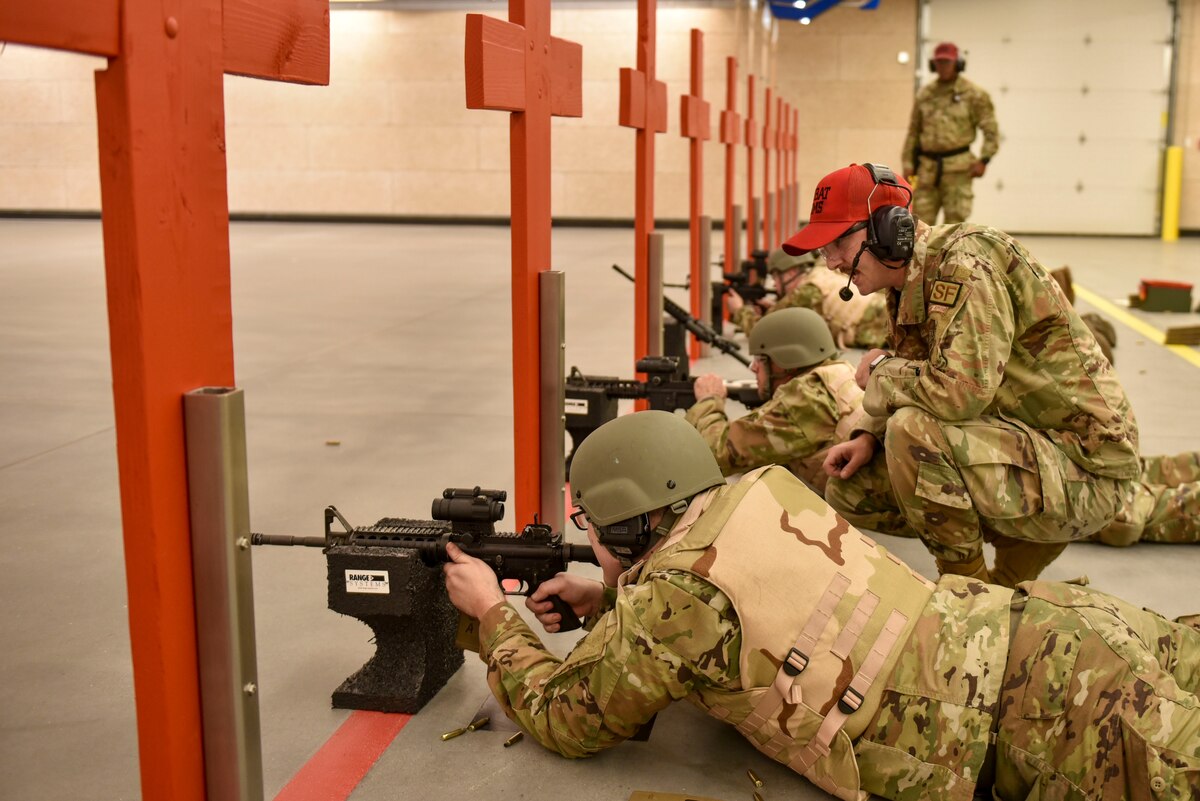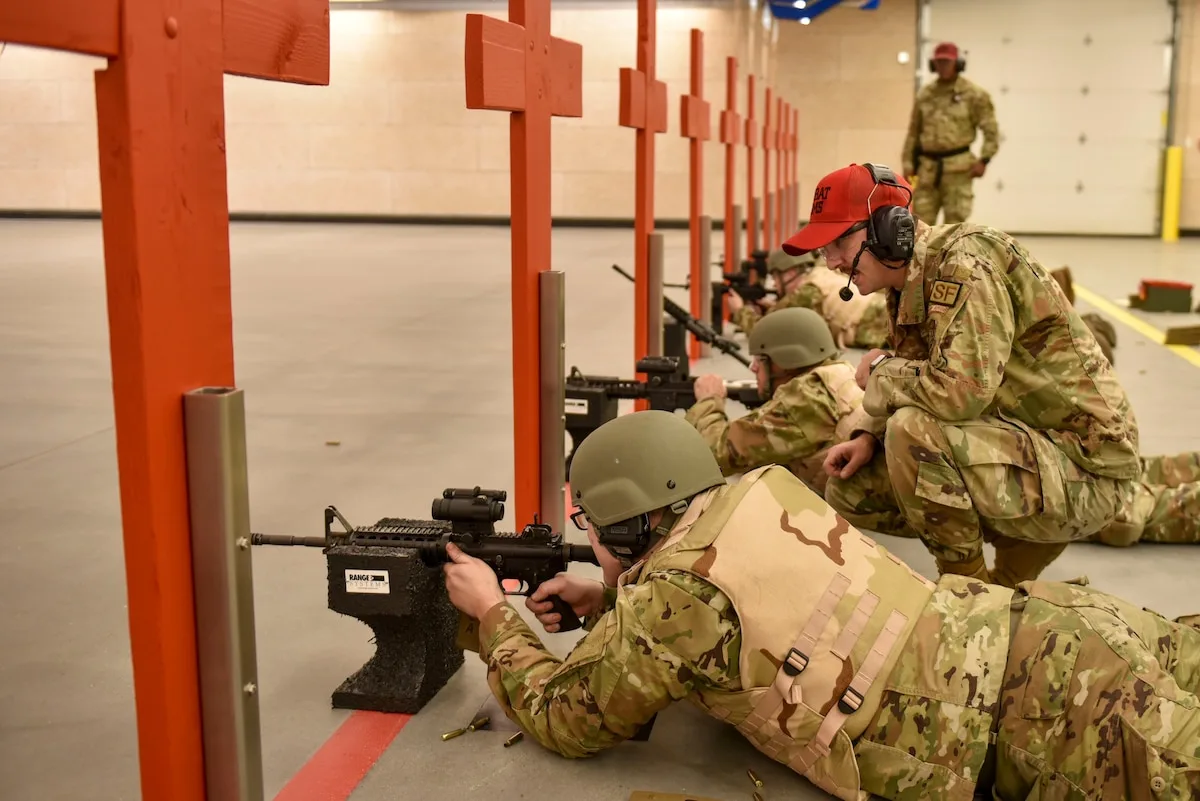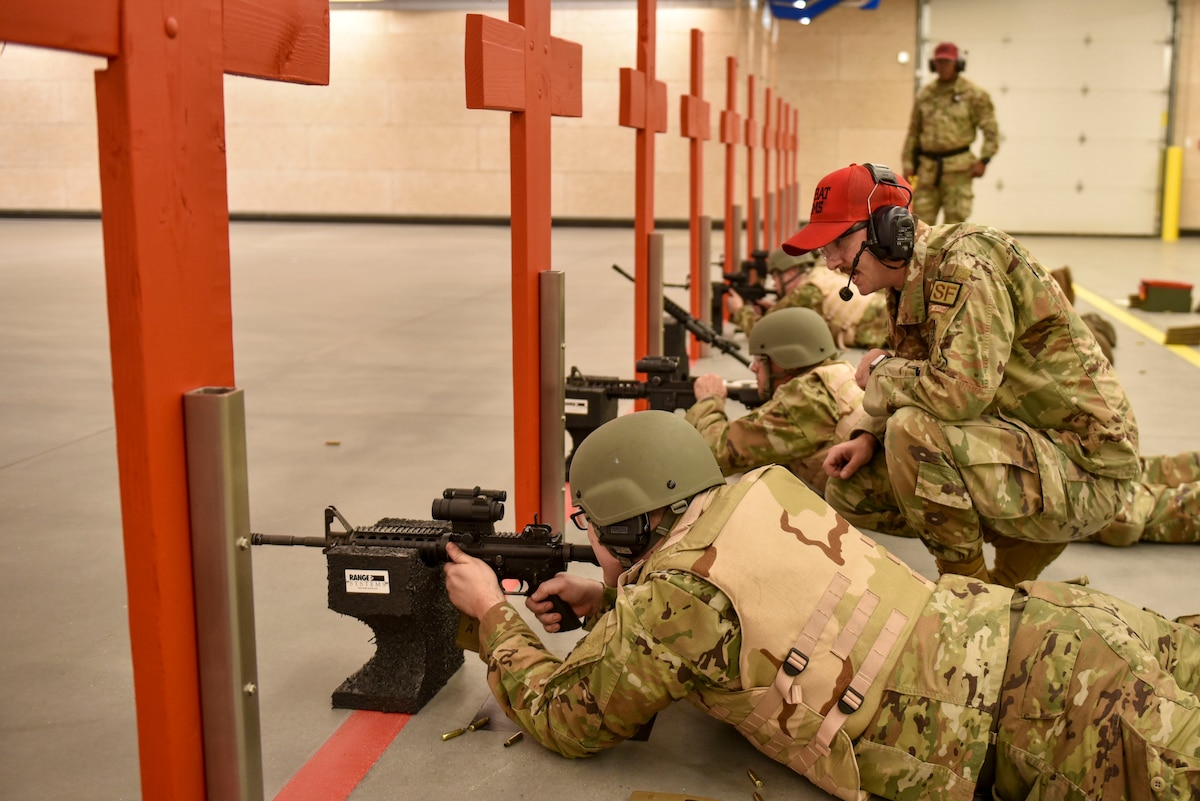Joe Bela
JOINT BASE SAN ANTONIO-LACKLAND, Texas – The Air Force Installation and Mission Support Center is connecting installations with their local communities to enhance mission effectiveness and strengthen ties.
The Air Force Community Partnership Program gives installation commanders and senior leaders collaborative tools and training that inspire partnerships with local communities. Facing similar challenges, like limited resources and budgetary constraints, they work together to find mutually beneficial solutions.
“It has tremendous upside potential for our installations and partner communities as we struggle with recurring fiscal shortfalls," said Jason Campbell, AFIMSC program manager for the Air Force Community Partnership Program.
“The partnership program is completely in tune with the concept of mission assurance through resiliency integration. So, by sharing resources and expertise, we can deliver results that benefit everyone,” he said.
Community Partnership and Mission Sustainment in the office of Assistant Secretary of the Air Force for Energy, Installations, and Environment sets strategy and policy for the program.
“AFIMSC handles the operational aspects, working closely with installation commanders and their neighboring defense communities across the nation,” Campbell said. “They form strategic alliances that foster a shared sense of purpose and a responsibility for supporting local military installations.”
The agreements between military installations and their state or local governments formalize mutually beneficial arrangements for the providing, receiving or sharing of installation support services.
The program’s success accounts for a growing list of significant installation-level initiatives.
A joint-use firing range in Spokane, Washington, is a notable example of such a partnership, the first of its kind for the DAF. Sharing a mutual mission support function, the Spokane County Sheriff Regional Training Center opened in late 2023, and trains Airmen and local law enforcement from Spokane County. It is also home to the Fairchild AFB Combat Arms Training and Maintenance Unit.
AFIMSC helped develop the funding documents for the IGSA, networking with the partners to arrive on an agreed language for the documents.
“We also made sure the project followed the right funding rules for AFIMSC to administer,” Campbell said.
The Air Force Civil Engineer Center, an AFIMSC primary subordinate unit, is using partnerships to help solve ecological issues facing Cannon AFB, New Mexico, and nearby communities.
The Ogallala Aquifer, a vast underground store of water spanning about 174,000 square miles, is the region’s primary source of water. Water levels in the aquifer are declining and the region could run out of water in about 10 years.
Working together, Cannon AFB, City of Clovis, and Curry County agreed on a solution that served all parties: the Readiness and Environmental Protection Integration Program, or REPI.
REPI, and other similar programs, help installations overcome threats imposed on mission readiness by environmental or climate change.
“It’s a Department of Defense program that funds off-base conservation or resilience projects,” said Shawn Rose, AFCEC REPI chief. “The partnerships help installations optimize project funds and resources to preserve military capabilities and protect local ecosystems.”
Cannon’s partnership with AFCEC, civilian and government stakeholders in eastern New Mexico supports the Ogallala Land and Water Conservancy that today protects water resources critical to base operations. The conservancy promotes sustainable land-use practices across 2.4 million acres of forestry and agricultural lands, while saving an expected 12 billion gallons of water over a three-year span.
AFCEC’s drought resilience project supports Cannon AFB and nearby communities by conserving water resources with a unique Water Rights Lease Agreement that compensates landowners.
“These relationships are paramount to our mission success and are built on a foundation of cooperation and trust, and we are grateful for the support we share with our local community,” said Col. Robert Johnston, 27th Special Operations Wing commander at Cannon.
Local communities are permanent partners in mission support, Campbell said.
“Cultivating relationships and establishing mutual agreements bolster mission assurance and enrich the connection between our bases and local communities," he said.
The program has produced more than 600 agreements and over 1,000 initiatives between communities and DAF installations since 2013. Estimated cost savings and avoidance is more than $300 million since inception.
More information is available on the DAF Installations, Energy and Environment website at https://www.safie.hq.af.mil.



